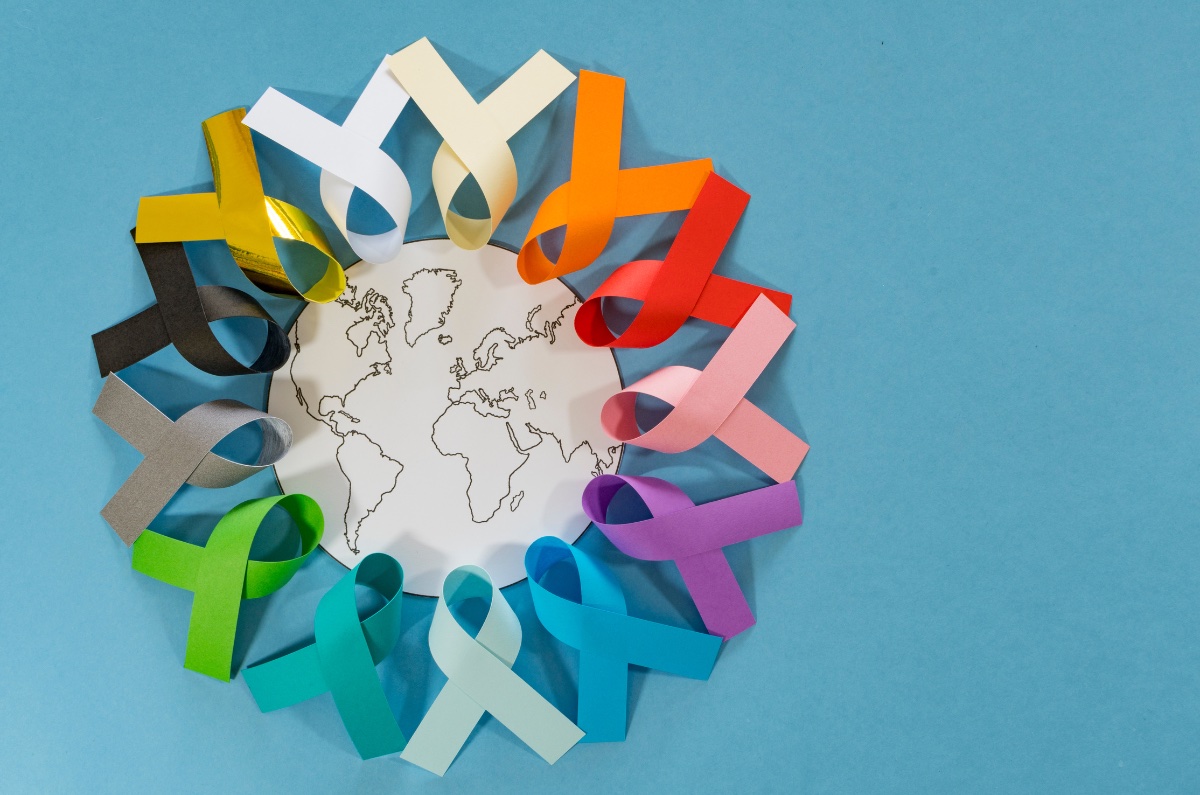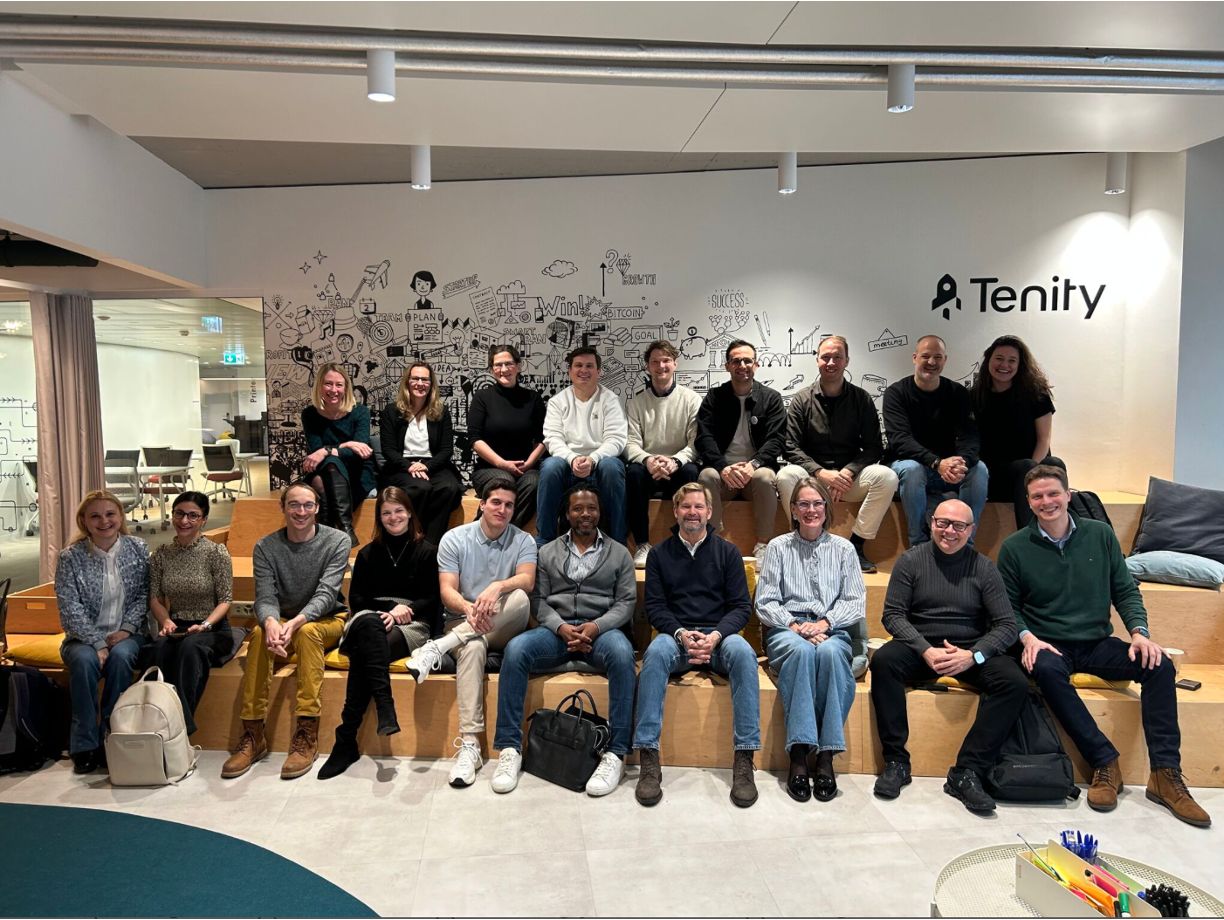A cancer diagnosis can be indiscriminate, yet the fight against it is far from equal. Last month a handful of reports and articles painted a stark picture of deep-seated inequalities in access to the right cancer care, a critical factor that not only dictates individual outcomes but also significantly amplifies the global burden of this devastating group of diseases.
A Looming Global Crisis
By 2050, new cancer cases worldwide are now expected to increase to over 35 million, a 77% increase from the estimated 20 million cases projected in 2022, according to the latest figures from the World Health Organisation (WHO)’s cancer agency, the International Agency for Research on Cancer (IARC). The IARC also recently published a report in Nature Medicine looking at global patterns and trends in breast cancer incidence and mortality, some alarming stats from the report forecast a 38% global increase in breast cancer cases and 68% rise in deaths by 2050.
The global estimates reveal striking inequities in the cancer burden according to human development, which is particularly true for breast cancer. In countries with a very high Human Development Index (HDI), it is estimated that 1 in 12 women will be diagnosed with breast cancer in their lifetime, and 1 in 71 women will die from it. By contrast, in countries with a low HDI, while the lifetime diagnosis rate is lower at 1 in 27 women, the mortality rate is significantly higher, with 1 in 48 women dying from the disease. In the UK specifically, cases are expected to rise from 58,756 a year in 2022 to 71,006 a year in 2050, and deaths will jump from 12,122 a year in 2022 to 17,261 in 2050.
Socioeconomic Inequality Drives Outcomes
The alarming reality highlighted by the reports point to the impact of socioeconomic deprivation on access to appropriate cancer care both globally, but also across the UK. In the UK, Cancer Research UK (CRUK)’s “Cancer in the UK 2025: Socioeconomic deprivation” lays bare the scale of this problem. This report shows that cancer death rates are nearly 60% higher for people living in the most deprived areas of the UK compared with the least deprived. The CRUK report equates this inequality to around 28,400 cancer deaths each year in the UK being linked to socioeconomic inequality.
The CRUK highlights that people living in more deprived areas are more likely to experience long waits from urgent referral for suspected cancer to starting treatment. The report references a study in England which found that individuals in the most deprived areas were 33% more likely to wait over 104 days for treatment compared to those in the least deprived areas, even when accounting for gender, age, and cancer site. Such delays can have dire consequences, potentially allowing the cancer to progress, limiting treatment options, and ultimately reducing the chances of survival.
Furthermore, the CRUK report indicates that for a number of cancer types, patients from more deprived areas are less likely to receive surgery or chemotherapy compared to those from less deprived backgrounds. This disparity persists even when patients have similar disease characteristics, suggesting that factors beyond purely clinical considerations are at play. For instance, the report mentions that bowel cancer patients in England living in the most deprived areas had a higher probability of being untreated or dying from the disease, linked to delayed access to treatment. Similarly, for stage 4 non-small cell lung cancer, patients in more deprived areas are around half as likely to receive any novel treatment interventions compared to those in less deprived areas.
Treatment Disparities in the UK
These findings are echoed by evidence released by The National Cancer Audit Collaborating Centre (NatCan), outlining failings within NHS services contributing to patients not receiving the right treatment. The data highlighted significant variation between hospitals in the provision of nationally-recommended treatments for cancers like prostate, kidney, and colon cancer. Shockingly, figures shared with the BBC revealed that 30% of patients with high-risk prostate cancer do not get curative treatment with either surgery or radiotherapy, with performance varying dramatically (20% to 43%) across different services. Similarly, 34% of stage three colon cancer cases do not receive chemotherapy within three months of surgery, with some hospitals exceeding 60%. For stage four renal cell carcinoma, a staggering 50% of patients do not get drug treatment, with performance varying from 20% to 85%.
Professor Ajay Aggarwal, clinical director at NatCan, expressed concern that so many patients were not getting recommended treatments and highlighted that “using what we have better could make a huge difference. It would extend and save lives”. He suggested several potential reasons for these problems accessing cancer care and variation, including services unfairly assuming older patients could not cope with treatment, as well as problems with staffing and capacity. Worryingly, there is evidence that smaller hospitals may not always refer patients to specialist centres where they can receive the necessary treatment, and even some larger centres are falling short for certain cancers.
The consequences of these treatment disparities are dire. As Tim Mitchell, president of the Royal College of Surgeons (RCS), stated in the BBC report, “inconsistent delivery means far too many patients miss out. At worst, this may mean some patients are needlessly dying or in unnecessary pain”. Cancer charities like Macmillan Cancer Support, described the findings as “quite staggering,” emphasising that tackling this variation should be the “number one priority” in the forthcoming national cancer strategy. We also talk about inequalities in accessing genomic sequencing tests in one of our recent articles.
Beyond socioeconomic factors at a national level, the reports, data, and evidence also illuminate geographical inequalities in treatment access on a global scale. As evidenced by the breast cancer projections from the IARC, which highlight that the burden of breast cancer is not evenly distributed globally. While diagnosis rates were highest in more affluent regions like Australia and New Zealand, North America, and northern Europe, death rates were highest in Melanesia and Polynesia, and in West Africa. This stark contrast suggests that even when women are diagnosed with breast cancer in less affluent regions, they may lack access to the same quality of treatment that leads to better survival outcomes in wealthier nations.
Childhood Cancer Inequalities Across Europe
The data released over the past month also chimes with a previously released factsheet on childhood cancer care and inequalities within the EU from December 2023, which reveals discrepancies in access to essential cancer medicines and to clinical trials for children and adolescents throughout the EU. This factsheet notes that cancer incidence, mortality rates, and survival percentages considerably vary among EU countries and regions. The estimated childhood cancer incidence for 2022 varied across EU countries, ranging from 77 to 185 per million children, with estimated childhood cancer mortality rates in 2022 ranging from 16 to 34 per million children across EU countries. The availability of essential medicines varied significantly between countries, with some having less than half of the required medications consistently available. Similarly, the proportion of oncology clinical trials open to participation varied considerably between countries, ranging from none to over 50%, indicating unequal access to innovative treatments and cancer care. As highlighted in the factsheet, every child and adolescent deserves an equal chance, and equal access to standard of care and innovative therapies is needed.
Urgent Need for Government and Health System Action
Addressing these multifaceted inequalities in access to the right cancer treatments is crucial to reducing the global burden of cancer care. The CRUK report, “Cancer in the UK 2025: Socioeconomic deprivation,” emphasises the urgent need for government action to make a difference. This includes developing targeted campaigns to improve access to help, increasing investment in cancer services in areas where the need is highest and implementing new and better ways to diagnose cancer at an early stage, such as targeted lung screening. Dr Ian Walker from CRUK stressed that “improving access to NHS services through funding and innovation will be vital, so that everyone gets the care they deserve”. We believe this last point is crucial to empower patients so they know what, where and how to access the right treatments for every stage of their cancer journey.
The forthcoming national cancer strategy for England is seen as a critical opportunity to address these inequalities. Eve Byrne from Macmillan Cancer Support stated that tackling the variation in treatment should be the “number one priority” of this strategy. Similarly, Europe’s Beating Cancer Plan puts childhood cancer under the spotlight, with initiatives aimed at ensuring better access to rapid and optimal detection, diagnosis, treatment, and care. The plan also aims to address the health outcomes of cancer treatments for survivors.
Ensuring equitable access to timely and effective cancer care, regardless of socioeconomic status or geographical location, is not just a matter of fairness; it is a fundamental requirement for reducing the global burden of this devastating disease. Concerted action from governments, healthcare systems, researchers, and charities and the private sector is urgently needed to dismantle these barriers and ensure that everyone has an equal chance in the fight against cancer. Failure to do so will mean that the “surge” projected by 2050 will not only be a rise in numbers, but also a reminder of our collective failure to address the deeply entrenched inequalities in cancer care.
At Gena, our mission is to break down the barriers within the fragmented health system to help patients navigate and ultimately access the right treatments for them, contact us here to find out more.
Skomer founded Gena after his mother passed away from Glioblastoma, a devastating brain cancer. As her caregiver and a cancer researcher, he witnessed the severe limitations in treating rare cancers.
Thus, Gena was born. Gena’s mission is to give cancer patients access to all available personalised treatment pathways. Informing better treatment decisions. Empowering cancer patients.
Skomer previously worked in the tech sector, responsible for building scaling teams. He completed his MSc at UCL’s School of Engineering in 2022, having written his dissertation on the applications of genomics within the health sector and beyond.



